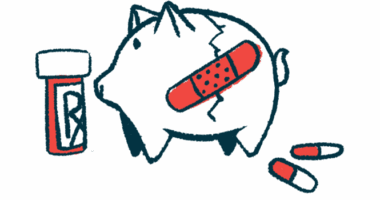Inotersen Seen to Improve Neurological Symptoms, Quality of Life of FAP Patients in Phase 3 Trial

The investigative drug inotersen was shown to significantly reduce neurological progression and improve quality of life in patients with familial amyloid polyneuropathy (FAP) – also referred to as hereditary transthyretin amyloidosis with polyneuropathy (hATTR-PN).
These findings resulted from the Phase 3 NEURO-TTR study (NCT01737398), and were subject of a presentation titled “Safety and Efficacy of Inotersen in Patients with Hereditary Transthyretin Amyloidosis Polyneuropathy (hATTR-PN)” at the 2017 Peripheral Nerve Society Annual Meeting held July 8-12 in Barcelona, Spain.
“The clinically meaningful benefit in quality of life bring a new energizing level of hope to the amyloidosis community around the world, a community whose critical needs have not been sufficiently addressed,” Isabelle Lousada, president and CEO of the Amyloidosis Research Consortium (ARC), said in a press release.
“We hope for a rapid approval process for inotersen to create access and availability of this important medicine, which has the potential to help patients maintain their independence and provide a brighter future for patients who suffer from this desperate and devastating disease,” she added.
Developed by Ionis Pharmaceuticals, inotersen was designed to specifically target all forms of the protein TTR (mutated and normal) to inhibit its production and reduce its levels, thereby preventing its accumulation in the tissues.
Previous clinical results have demonstrated that a single, once-weekly administration of inotersen would induce stable and robust reduction of TTR protein in different populations of patients with TTR-related amyloidosis. Recent results from the NEURO-TTR trial demonstrate the potential of this drug candidate.
A total of 172 patients with FAP were included in the Phase 3 trial. They randomly received a once-weekly inotersen injection or placebo for up to 15 months.
Those receiving inotersen presented a benefit of 6.14 points in the Norfolk Quality of Life Questionnaire-Diabetic Neuropathy (Norfolk QoL-DN) after eight months of treatment, and a benefit of 11.68 points by the end of the trial, compared to the placebo group.
In addition, treated patients also showed significant improvements on the modified Neuropathy Impairment Score +7 (mNIS+7) compared to placebo, at both time points of outcome measurement.
These beneficial effects were found to be independent of TTR gene status (mutated or normal) or the disease severity (stage 1 or 2).
“The magnitude of benefit on quality of life achieved with inotersen treatment has never been observed before in patients with FAP,” Teresa Coelho, MD, neurologist and neurophysiologist at Santo António Hospital in Porto, Portugal, said in a press release.
“The nearly 12-point difference observed with inotersen treatment from placebo represents a clinically meaningful benefit and provides hope that inotersen could allow FAP patients to maintain greater independence by alleviating debilitating symptoms and preserving their ability to perform daily activities,” Coelho said.
The safety profile of inotersen observed during the trial was similar to previous reports. The main adverse events reported were renal dysfunction and reduced levels of blood platelets, which were manageable with supportive therapies.
“We are continuing to review the full data package from the NEURO-TTR study and prepare the regulatory marketing applications for submission this year,” said Brett Monia, senior vice president of drug discovery and franchise leader for oncology and rare diseases at Ionis Pharmaceuticals. “We look forward to sharing detailed results in future publications and medical meetings.”
A Phase 3 NEURO-TTR open-label extension study (NCT02175004) is ongoing to assess the safety and tolerability of long-term inotersen treatment.
FAP is a progressive and debilitating genetic disease in which patients experience TTR protein build-up in major organs, including peripheral nerves, heart, intestinal tract, kidney and bladder. Patients experience nerve damage throughout their body, resulting in the progressive loss of motor functions, such as walking. There are an estimated 10,000 FAP patients worldwide, and there are no drugs approved for its treatment in the U.S.






